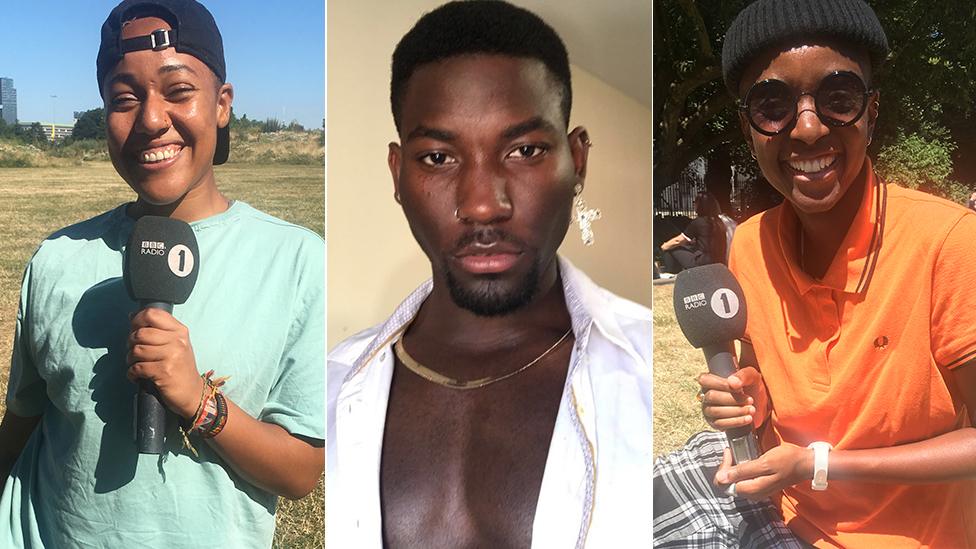World Cup 2018: Smuggling the Pride flag into Russia
- Published
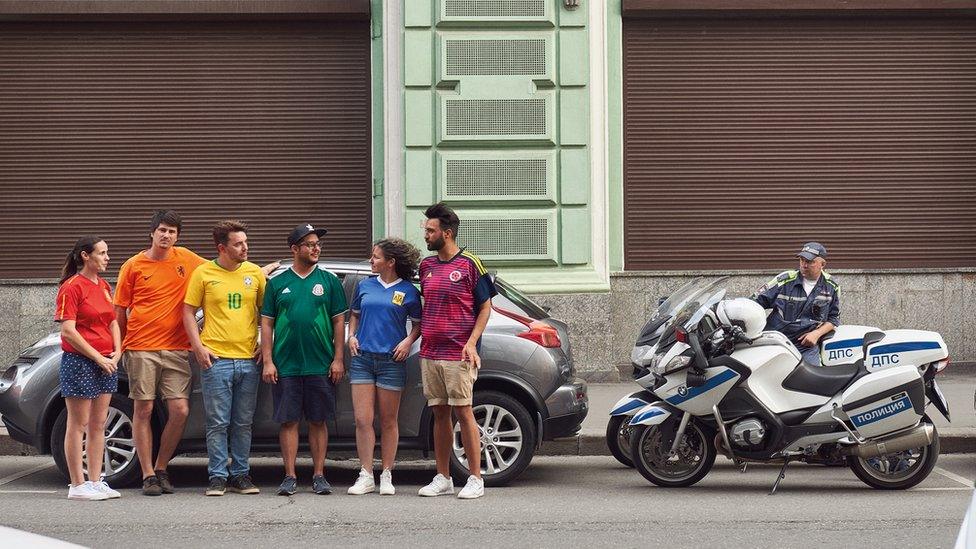
Six LGBT activists have found a way to fly the Pride flag in Russia - by wearing football shirts in the rainbow colours.
The country has had a law banning the spreading of "gay propaganda" among under-18s since 2013.
The Pride flag is a symbol celebrating lesbian, gay, bisexual and transgender communities, but displaying it in Russia can get you arrested.
The group got together and wore their nations' football tops around Moscow.
Allow Instagram content?
This article contains content provided by Instagram. We ask for your permission before anything is loaded, as they may be using cookies and other technologies. You may want to read Meta’s Instagram cookie policy, external and privacy policy, external before accepting. To view this content choose ‘accept and continue’.
It meant the shirts of Spain, the Netherlands (who weren't in the World Cup), Brazil, Mexico, Argentina and Colombia collectively made the colours of the stripes of the Pride flag: red, orange, yellow, green, blue, and violet.
The flag is typically flown horizontally and looks like a rainbow.
Before the World Cup there were concerns about how LGBT people might be treated because of the country's legislation.
England fan Lee told us he was apprehensive about going, while British MPs also expressed concern about the safety of fans.
Since the start of the World Cup though, Russia has been praised for its hospitality.
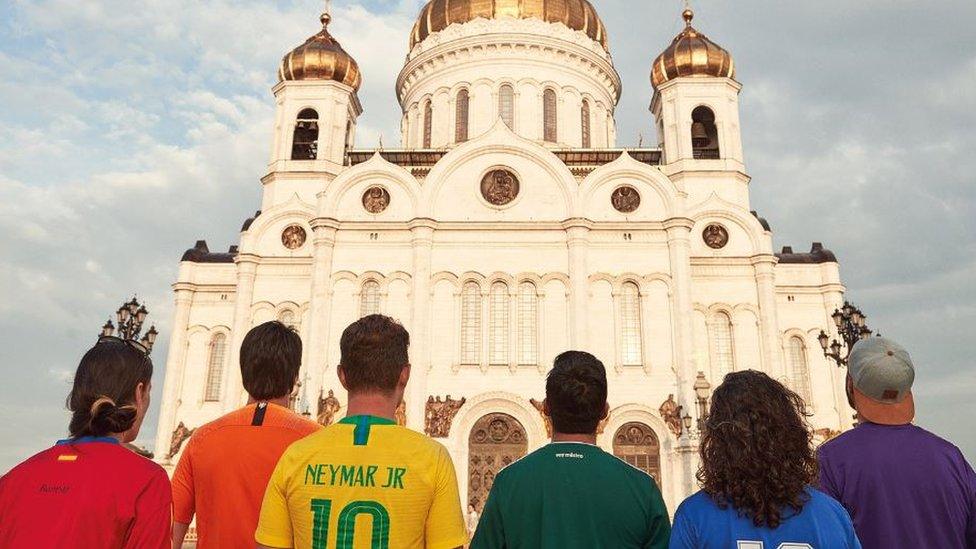
The activists are Marta Márquez from Spain, Eric Houter from the Netherlands, Eloi Pierozan Junior from Brazil, Guillermo León from Mexico, Vanesa Paola Ferrario from Colombia and Mateo Fernández Gómez from Argentina.
They visited iconic places like the Red Square and the Russian Orthodox cathedral in Moscow, and also travelled on the underground and stood next to police officers.
Marta told Newsbeat: "Once we landed in Russia our first steps felt very scary, but little by little we realised that nobody knew what we were doing, so I started to relax, although I stayed alert.
"Over our five day visit there was no sense of real danger, nobody threatened us.
"Most people were very kind to us, especially the tourists who saw us as equals. However, if they had known what we were doing it probably would have been different."
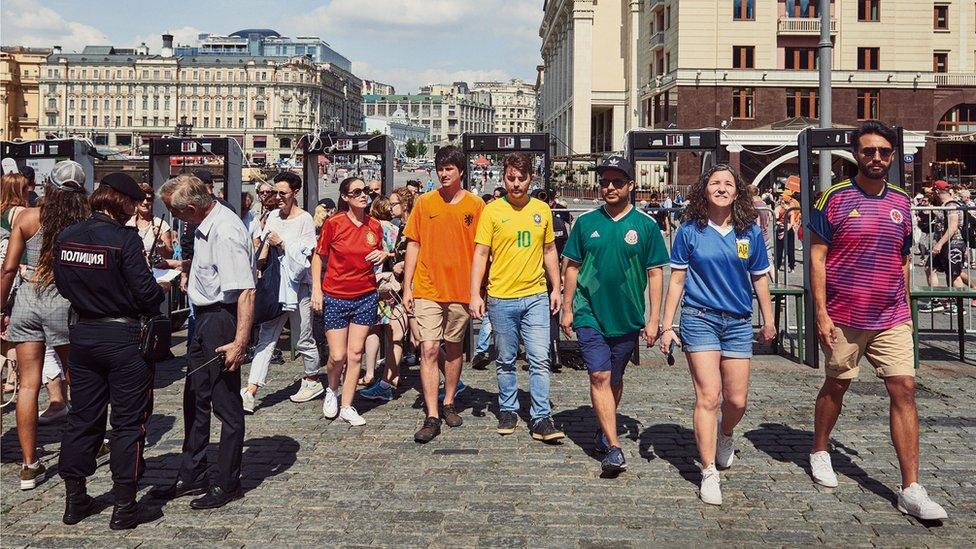
The project, aptly called the 'Hidden Flag', aimed to take advantage of the fact Russia has been hosting the World Cup at the same time as many Pride parades took place around the world.
As the photos circulated, many people, including other LGBT groups, loved it.
Allow X content?
This article contains content provided by X. We ask for your permission before anything is loaded, as they may be using cookies and other technologies. You may want to read X’s cookie policy, external and privacy policy, external before accepting. To view this content choose ‘accept and continue’.
Allow X content?
This article contains content provided by X. We ask for your permission before anything is loaded, as they may be using cookies and other technologies. You may want to read X’s cookie policy, external and privacy policy, external before accepting. To view this content choose ‘accept and continue’.
Follow Newsbeat on Instagram, external, Facebook, external and Twitter, external.
Listen to Newsbeat live at 12:45 and 17:45 every weekday on BBC Radio 1 and 1Xtra - if you miss us you can listen back here.
- Published15 June 2018
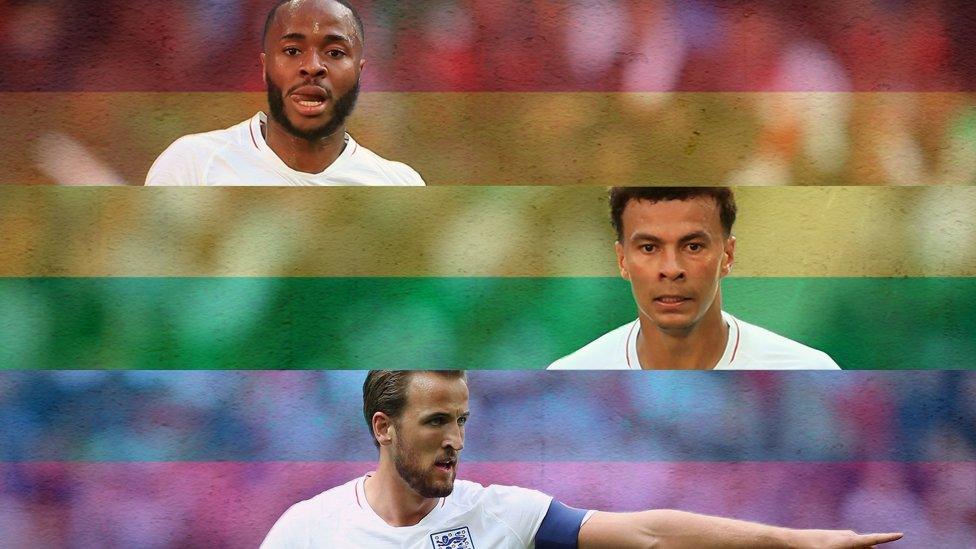
- Published6 July 2018
